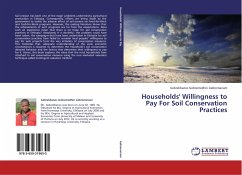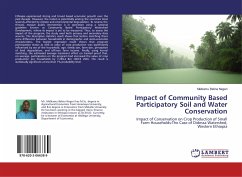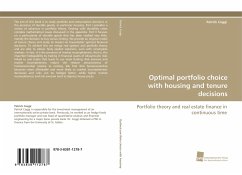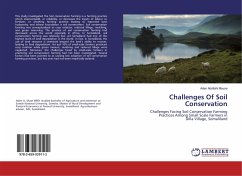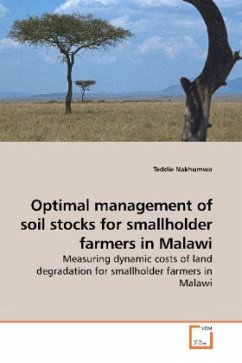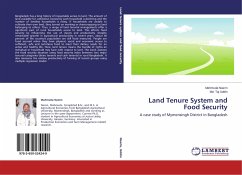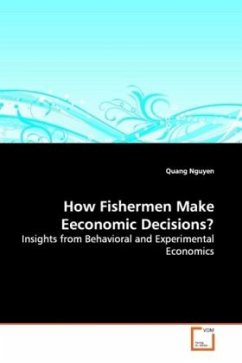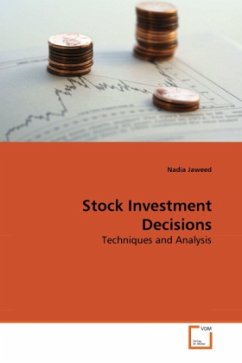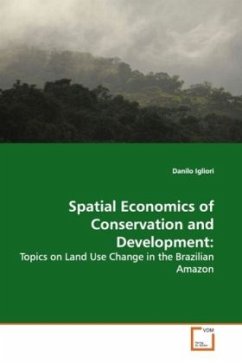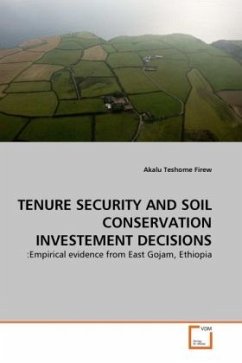
TENURE SECURITY AND SOIL CONSERVATION INVESTEMENT DECISIONS
:Empirical evidence from East Gojam, Ethiopia
Versandkostenfrei!
Versandfertig in 6-10 Tagen
32,99 €
inkl. MwSt.

PAYBACK Punkte
16 °P sammeln!
The study shows that tenure insecurity is an important variable that affects the probability of investing in soil conservation technologies. However, the reverse relation is insignificant. Farmers' soil conservation investment decisions are positively and significantly related to slope, age, education level and public investment, whereas, tenure insecurity and distance from the main road have a negative significant influences on soil conservation investments. The analysis of tenure insecurity reveals that expectation of redistribution and farm size has a negative influence on tenure security, ...
The study shows that tenure insecurity is an important variable that affects the probability of investing in soil conservation technologies. However, the reverse relation is insignificant. Farmers' soil conservation investment decisions are positively and significantly related to slope, age, education level and public investment, whereas, tenure insecurity and distance from the main road have a negative significant influences on soil conservation investments. The analysis of tenure insecurity reveals that expectation of redistribution and farm size has a negative influence on tenure security, whereas education level has a reverse effect. The empirical analysis results of fertilizer use model reveal that fertilizer use is positively influenced by availability of credit and number of oxen, whereas age and education level are negatively influencing the decision of fertilizer use. Likewise, the intensity of fertilizer use is positively influenced by farm size and number of oxen. However, soil conservation investment has no influence on fertilizer use.



